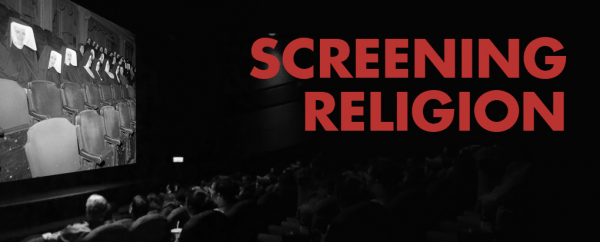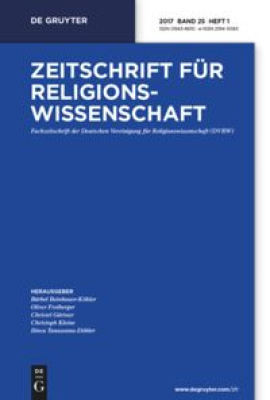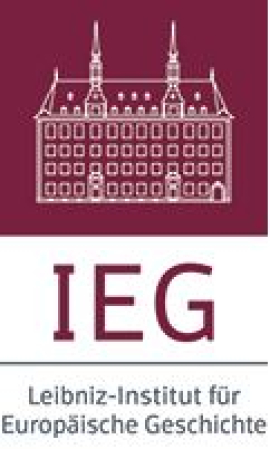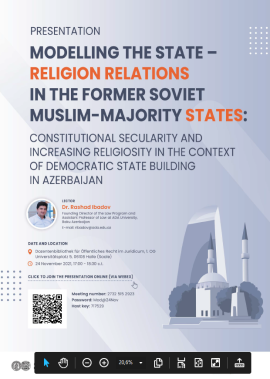|
If the newsletter does not display properly, please click here. |

|
|||||
|
|||||
|
Dear friends and colleagues, Next Wednesday is a public holiday in Saxony and therefore there will be no Wednesday Weekly. For this reason, we are already today announcing the next colloquium with Thomas Schmidt-Lux on 24 November. On the same day, the programme of Screening Religion for the new semester will start with the film "Dealing with Death". We also have new publications for you, a recommendation for a conference, a hybrid presentation and a call for papers, and lastly we give you an update on the current Corona regulations in Leipzig and at Leipzig University. Enjoy and have a great week! Anja & Lucy |
|||||

|
|||||
Next colloquium on 24 November: Thomas Schmidt-Lux on “Secularity and secularization in the medium of architecture. Studies on Turkey, India and the Soviet Union”In two weeks we will be back with the KFG colloquium: Our Senior Research Fellow Thomas Schmidt-Lux will give a presentation on his research project “Secularity and secularization in the medium of architecture. Studies on Turkey, India and the Soviet Union”. The project aims to research the role of architecture in the process of differentiation and constitution of secular spheres and societies. The research-guiding assumption is that social relations between the secular and the religious find their expression also in a material way and are established and stabilized through architecture. The project uses three case studies as examples (Soviet Union, Turkey, India). In the member area, you find the relevant readings: an outline of the research proposal as well as an article (in German) on the Paulinum – Assembly Hall and University Church of St. Paul. The colloquium is planned to take place as a hybrid event. If you would like to attend in person, please register via e-mail. The number of physically present participants again is limited to 10 people. In the member area, you will also find the zoom connection data in case you plan to join the colloquium online. 24 November | 9.15–11.45 a.m. (CET) Hybrid format | Strohsack, 4.55 and via zoom |
|||||

|
|||||
Screening Religion: “Dealing with Death”, 24 November at naToWe are happy that our Screening Religion film series starts again after a two months break: The film “Dealing with Death”, directed by Paul Sin Nam Rigter, tells the story of the funeral organization Yarden that seeks to establish a new multicultural funeral home. The many cultures in Bijlmer, a suburb in the southeast of Amsterdam, all have their own rituals around bidding farewell to the dead. Funeral director Anita is tasked with finding out what the community would want in this new funeral home. But the more the initially confident Anita sees and learns, the more she begins to have her doubts. Do these diverse communities actually need Yarden? This largely observational account follows Anita’s uncertain mission over a period of more than five years. It combines her own experience with a larger picture full of cultural contrasts. The film will be shown in Dutch, English, Sranantongo, Twi with English subs. After the film there will be a discussion. 24 November | 7.00 p.m. (CET) Cinémathèque Leipzig at naTo, Karl-Liebknecht-Straße 46, 04275 Leipzig Free entry, donations welcome |
|||||
|
|||||

|
|||||
CfP/Workshop on “Aesthetics and Affects of Power in the Context of Religion”The Institute for the Study of Religions at University of Erfurt invites to contribute to a Workshop on “Aesthetics and affects of power in the context of religion” taking place in May 2022: To disable and enable in colonial and other contexts did and does not only mean “control of the economy, the political, and knowledge, but also control over the senses and perception” (Mignolo and Velazqez 2013). Religious practices and discourses took and take an especially important role in creating sensory mechanisms that structure power relations by shaping perception via aesthetics and affects. The sensory power mechanisms outlive religious practices and expand beyond the religious sphere; they become alive in the body of the aesthetically affected. This workshop aims to understand—by case studies and theoretical reflection—how these sensory mechanisms function in different (religious) contexts, such as (post)colonial contact zones and global religious and spiritual practices and movements; how they relate and intertwine with intersectional discourses and practices, such as racism, whiteness, (s)exoticization, secularization; and how they affect the scholarly practice of the study of religion. Abstracts of 300 words can be submitted via e-mail.
Deadline for submission of abstracts: 1 December Workshop Dates: 11–13 May 2022, University of Erfurt
|
|||||
|
|||||

|
|||||
Update on COVID-19 health protection measures in LeipzigIn response to the current intensified infection situation and the continuing dynamic infection incidence in Saxony, the Saxon government has passed a new Corona Protection Ordinance for the Free State of Saxony. It has been in force since 8 November and will be valid until 25 November. We would like to inform you about the most important points:
The management of Leipzig University will inform staff and students later this week about any effects of the new regulation on everyday working life at the university. However, no changes in university teaching are expected and every effort will be made to continue attendance on-site. We at the KFG also continue to plan our upcoming colloquia and workshops as hybrid events. If there should be any changes and adjustments, we will let you know in good time. |
|||||
|
If you have any content that you think suits the purpose of the weekly, please feel free to send it to us at multiple-secularities@uni-leipzig.de. |
|||||
|
Kolleg-Forschungsgruppe "Multiple Secularities - Beyond the West, Beyond Modernities" Nikolaistraße 8-10, 04109 Leipzig Mail: multiple-secularities@uni-leipzig.de |


